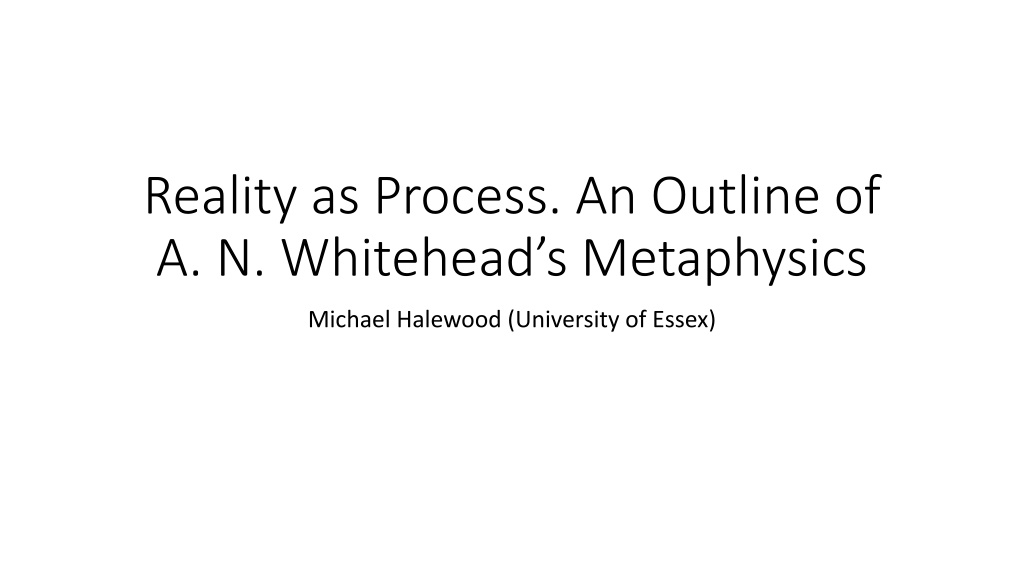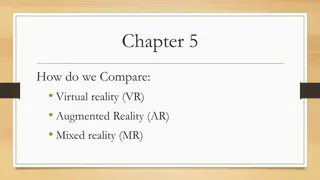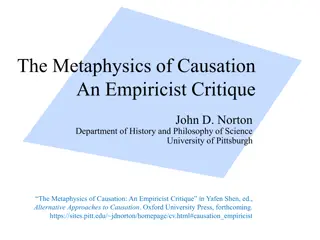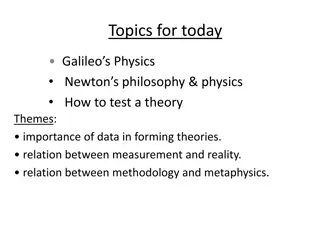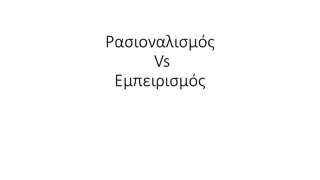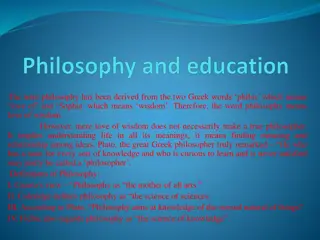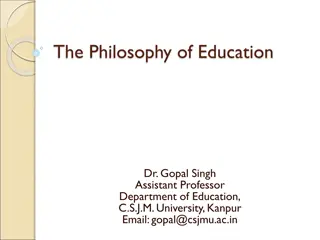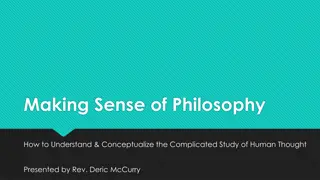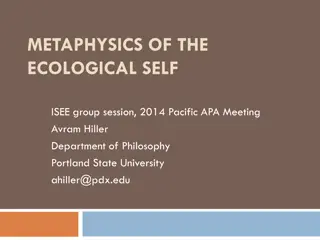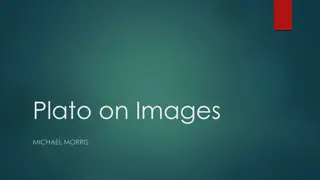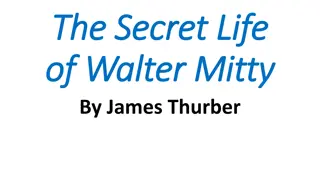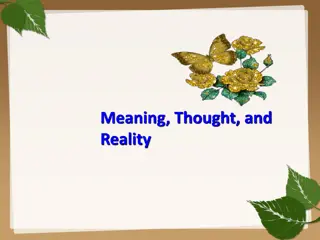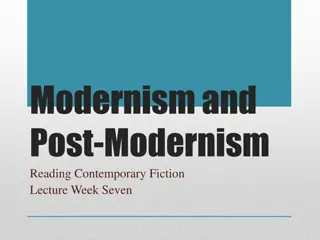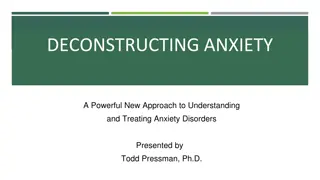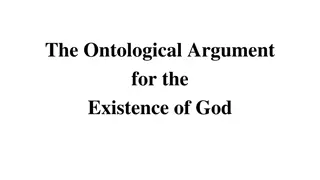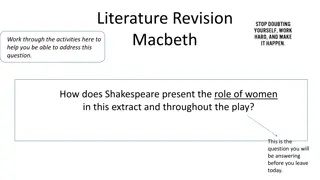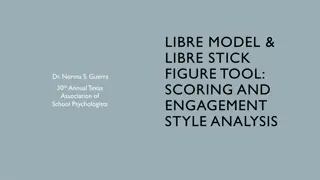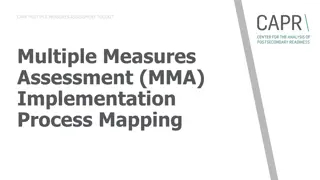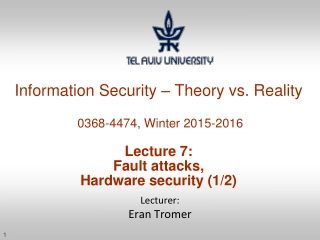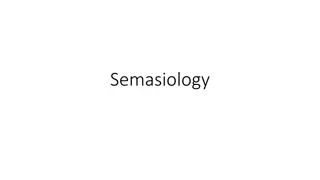Exploring Reality as a Process in A.N. Whitehead's Metaphysics
Delve into A.N. Whitehead's metaphysical concepts, such as creativity and the multifariousness of the world, challenging traditional philosophical notions and questioning language's impact on intelligence. Discover Whitehead's texts post-1924 and his critique of Aristotelian logic, urging philosophy to go beyond truth and falsehood judgments to embrace the complexity and novelty of existence.
Uploaded on Sep 17, 2024 | 0 Views
Download Presentation

Please find below an Image/Link to download the presentation.
The content on the website is provided AS IS for your information and personal use only. It may not be sold, licensed, or shared on other websites without obtaining consent from the author. Download presentation by click this link. If you encounter any issues during the download, it is possible that the publisher has removed the file from their server.
E N D
Presentation Transcript
Reality as Process. An Outline of A. N. Whitehead s Metaphysics Michael Halewood (University of Essex)
Creativity ' Creativity ' is the principle of novelty. (Whitehead, Process and Reality [PR]: 21] In the abstract language here adopted for metaphysical statement, passing on becomes creativity, in the dictionary sense of the verb creare, to bring forth, beget, produce ' (PR 213).
Whiteheads philosophical texts (post 1924) Science and the Modern World (1925) Religion in the Making (1926) Symbolism. Its Meaning and Effect (1927) Process and Reality (1929) [In 1978 a corrected edition was published which is now the accepted version for Whitehead scholars] Adventures of Ideas (1933) Modes of Thought (1938)
A problem with language? Philosophy is a battle against the bewitchment of our intelligence by means of our language (Wittgenstein, Philosophical Investigations: 109). Rudolf Carnap (1932) The Elimination of Metaphysics Through Logical Analysis of Language .
Whitehead asks more of philosophy Unfortunately theories, under their name of propositions, have been handed over to logicians, who have countenanced the doctrine that their one function is to be judged as to their truth or falsehood . (Whitehead, PR: 184) Error is the price we pay for progress (Whitehead, PR: 187). Philosophy may not neglect the multifariousness of the world the fairies dance, and Christ is nailed to the cross (PR 338).
The Problem of Primary Substance The Problem of Primary Substance The subject-predicate axis: For example consider the type of propositions such as The grass is green, and The whale is big. This subject-predicate form of statement seems so simple, leading straight to a metaphysical first principle; and yet in these examples it conceals such complex, diverse meanings (Whitehead, PR: 13). the exclusive reliance on sense-perception promotes a false metaphysics (Whitehead, 1933: 281)
A problem with Aristotle The unquestioned acceptance of the Aristotelian logic has led to an ingrained tendency to postulate a sub-stratum for whatever is disclosed in sense awareness, namely, to look below what we are aware of for the substance in the sense of the concrete thing (Whitehead, Concept of Nature, 1964 [1920]: 18). The evil produced by Aristotelian primary substance is exactly this habit of metaphysical emphasis upon the subject-predicate form of propositions (Whitehead, PR: 30).
Summing up the problem which Whitehead wants to overcome (for both science and philosophy) All modern epistemologies, all modern cosmologies, wrestle with this problem. There is, for their doctrine, a mysterious reality in the background, intrinsically unknowable by any direct intercourse (Whitehead, Adventures of Ideas, 1933: 170). in the present-day reconstruction of physics fragments of the Newtonian concepts are stubbornly retained. The result is to reduce modern physics to a sort of mystic chant over an unintelligible Universe (Whitehead, Modes of Thought, 1938: 152). The story commences with the wave-theory of light and ends with the wave-theory of matter (Whitehead, 1933: 200).
Becoming/Passing on/Relativity/Creativity Each substantial thing is thus conceived as complete in itself, without reference to any other substantial thing (Whitehead, 1933: 169). it belongs to the nature of a being that it is a potential for every becoming. This is the principle of relativity . (PR, 22). The principle of universal relativity directly traverses Aristotle s dictum, A substance is not present in a subject. On the contrary, according to this principle an actual entity is present in other actual entities... The philosophy of organism is mainly devoted to the task of making clear the notion of being present in another entity. (PR, 50. Emphasis in original.)
It is fundamental to the metaphysical doctrine of the philosophy of organism, that the notion of an actual entity as the unchanging subject of change is completely abandoned. An actual entity is at once the subject experiencing and the superject of its experiences. It is subject-superject and neither half of this description can for a moment be lost sight of. (PR, 29) concrescence (PR, 41-2)
Reality as Process is the past hurling itself into a new transcendent fact. It is the flying dart...hurled beyond the bounds of the world (Whitehead, 1933: 227). Being is constituted through the launch of the past into the future. This is the being of becoming. Moreover: how an actual entity becomes constitutes what that actual entity is... Its being is constituted by its becoming . This is the principle of process (PR, 23. Emphasis in original). subject and object are relative terms (AI, Whitehead, 1933: 226) a molecule is a historic route of actual occasions (PR, 80)
Prehensions the first analysis of an actual entity, into its most concrete elements, discloses it to be a concrescence of prehensions, which have originated in the process of becoming. All further analysis is an analysis of prehensions (PR, 23). The di-polar character of existence: Each actuality is essentially bipolar, physical and mental, and the physical inheritance is essentially accompanied by a conceptual reaction partly conformed to it, and partly introductory of a relevant novel contrast (PR, 108).
